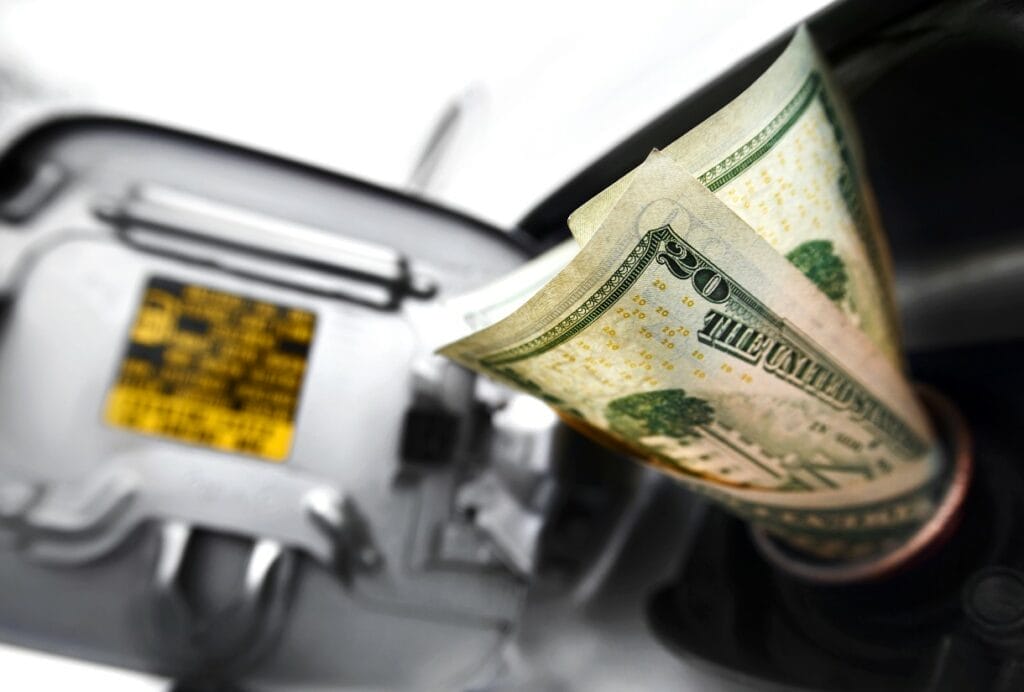Our widely disliked and perennially foolish law may at last go away

Wisconsin has, in state Sen. Rob Hutton, a mad-eyed optimist, for the Brookfield Republican imagines that this is the time, after decades of trying, that Wisconsin could repeal its minimum markup law.
He might be right.
It is a little puzzling that such a repeal hasn’t already happened. Atop whatever world events might do to the price of oil, Wisconsin insists that gas stations add about 9% to the price of gas before daring to sell it. The law similarly demands markups on tobacco and booze. For everything else, from school supplies to that big-screen TV you got on Black Friday, retailers cannot, shall not, must not sell for below cost. It’s “deceptive” and “unfair,” says the law, to lure you in with incandescently hot specials only to come out even on everything else you’ll put in the cart.
Retailers can do that in perhaps 30 states, depending on how you count. Even here, maybe they can get away with it, since it’s enforced by the state mostly when competitors complain, and most complaints involve gas.
The bill that Hutton, Rep. Dave Maxey and some colleagues are introducing this week would repeal all that. Prices would simply be a matter of what buyers and sellers agree on. “At no cost to taxpayers,” Hutton said by email, lawmakers could “ease the financial burden people face every time they go shopping or fill up their car simply by letting retailers and consumers set prices and compete in a free market.”
Persistently bad idea
The proposal mimics one from 2019 that, between the two houses, had 15 cosponsors — and languished without ever getting a committee hearing or vote. It follows a parade, year after year, of bills trying and failing to end the markup law on particular goods or in whole. The thing even survived being overturned by a federal court. Democrats and Republicans have worked hand in hand. Gov. Tony Evers has in recent years expressed openness. Yet the law remains.
Why?
After all, it makes things more costly. Gas was costlier and competition was muted because of the law, economists were finding for the Badger Institute (under its former name) — in 1999. Another look in 2008 put the effect at about 30 cents a gallon. In 2003, the Federal Trade Commission said it raised gas prices. The law raises prescription drug costs, we were finding in 2020. Over and over, for decades, the findings have been unequivocal: The law artificially raises prices for Wisconsinites.
And its reasoning is garbage. The law passed in 1939 on the notion that chain stores could outcompete local shops on prices and that consumers needed to be protected from such abusively nice treatment. Or, rather, stores needed to be protected: As the law’s preface reads, when retailers compete too hard on price, it “causes commercial dislocations,” “works back against the farmer,” and “burdens and obstructs commerce.” All that competition leads to “an inevitable train of undesirable consequences, including economic depression.”
Well, no, not in the majority of states that do not suffer such mandated markups. Indiana, for instance, is not a doomscape of corpses left by cutthroat competition — because in such competition no actual throats are cut. Instead, retailers simply try to lure you and me by being better or cheaper. Big-box chains never reach the nirvana where, competitors eliminated, they can jack up prices, because there’s always a new big box. Or a charmingly local little one, or an organic one, or a craft-distilled high-service one, and isn’t competition great?
Costs and benefits
Why Wisconsin’s law remains likely is a matter of concentrated benefits and diffused costs. Retailers who benefit feel a repeal would be a great loss, so they, few and cohesive, devote a lot of energy and vigorous lobbying to preventing it. Consumers pay a price, but we’re many and disorganized, and it’s not fatal, and our to-do list is endless.
So what makes Hutton think it’s worth the energy to storm the castle? Apart from a repeal being a good idea anyhow, there’s the unlikely example of Minnesota, not a usual beacon of liberty, repealing its mandatory markup on gasoline this year in a bipartisan moment of good sense. Hutton’s spokesman, Chris Rochester, said that between that and how “in each session the idea has made more and more progress through the Legislature,” there is hope.
For my part, I think it’s good practice. Certainly, there are bigger issues — reforming taxes, beating back a cultural revolution, restoring the economy. All are huge lifts. This is a small matter, but it’s fairly clear, easy to explain, easy to understand. It can put a win on the board for freedom in short order.
Patrick McIlheran is the Director of Policy at the Badger Institute. Permission to reprint is granted as long as the author and Badger Institute are properly cited.
Submit a comment
"*" indicates required fields




